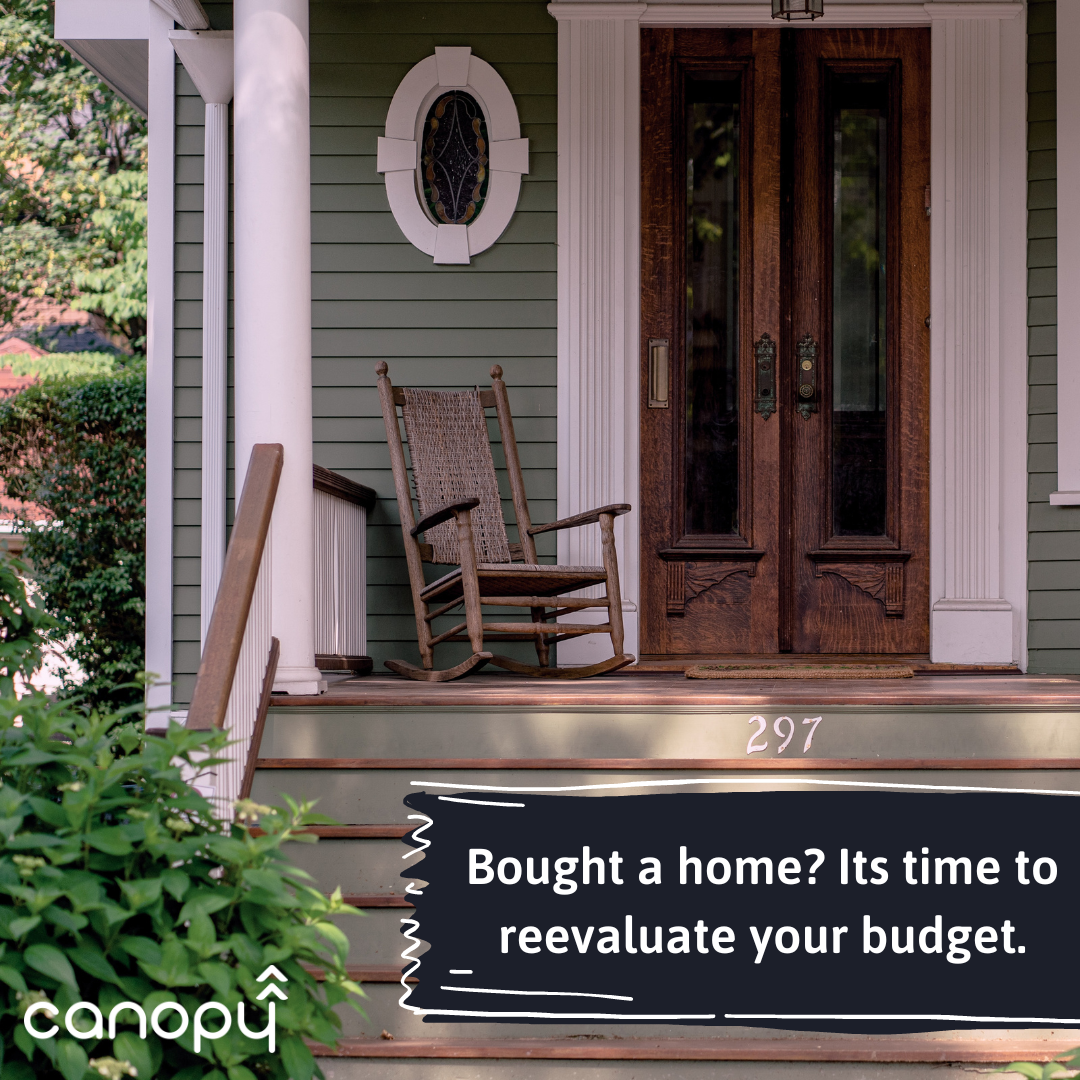First-time homebuyers face more than just the challenges of moving into a new place and making it feel like home.
Afterall, with Canopy Credit Union’s low rates and monthly mortgage payments, you may be tempted to run out and start buying new furnishings, appliances, and décor — or planning a big remodeling project like creating the chef’s kitchen you’ve always wanted. But one of the most important things you’ll need to do first is evaluate and refocus your finances to take a lot of new responsibilities and potential expenses into account.
Plan to Save More than You Expected.
You’ve probably already planned for immediate expenses such as closing costs, moving expenses, new furniture, or renovations. No matter the situation, aim to have enough savings that can, at a minimum, cover a few months of monthly expenses. The exact amount you should have after buying a house will depend on your personal situation and other personal savings goals.
Create a Larger Emergency Fund.
Financial experts typically recommend aiming to put aside at least three to six months' worth of living expenses along with enough cover unexpected expenses, such as car repairs or medical treatment, home repairs such as a water heater replacement or plumbing repairs. Furthermore, the monthly expenses you'll need to cover may have increased as a homeowner. You may have higher utility bills and a larger monthly housing payment.
Keep Retirement Savings Off Limits.
Avoid using long-term, retirement savings to meet short-term cash needs, including additional home expenses. Instead, budget for additional expenses in other ways, like by reducing unnecessary spending or increasing your income.
Mortgage-Related Expenses.
Monthly mortgage payments generally include principal, interest, taxes, and insurance, but not always. In some cases, you might need to pay property taxes outside of your mortgage payment. Conventional lenders require borrowers to have PMI to protect loans with down payments below 20%, but many government-backed lenders do not (though they may have other methods to secure the loan).
New Insurance Coverage Needs.
One of the most important new expenses to factor into your new budget is homeowner's insurance. Unlike PMI, which protects your loan, homeowner's insurance is for the property itself and will cover the cost for certain types of damages, so you don't have to pay out of pocket. You may also want to expand life insurance or disability insurance as well. You never know what life may bring, which is why you want to be prepared if something should happen to you (or your partner, if you're in a dual-income home).
Managing Other New Expenses.
Many new expenses can take first time homeowners by surprise. For instance, you may have to pay for your water and private sanitation, or you could face higher utility bills. Ideally, you should ask for an estimate of what water, electricity, and gas costs from the previous owner before you move in.
How Much Should You Save Each Year for Home Maintenance?
One rule of thumb is to set aside 1% of your home price for maintenance. So, for example, if your home's value is $400,000, try to save $4,000 per year for maintenance.
Annual upkeep costs you'll want to plan for can include:
- HVAC maintenance
- Gutter cleaning and minor roof repair
- Interior and exterior painting
- Lawn care and snow removal
Long-term, major areas for repairs and replacements to factor in a savings plan include:
- Hot water heater
- Siding
- HVAC
- Plumbing systems
- Roof
- Appliances
Preparing for the Unexpected Pays Off.
Renters tend to have predictable monthly expenses. As a homeowner, being prepared for unexpected costs for repairs and ongoing maintenance will help you deal with potential problems proactively. Remember that your home is not only the place you live, but likely the largest investment you may ever make. Protecting its value should be one of your top financial priorities.
